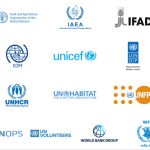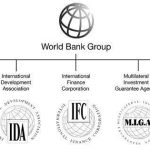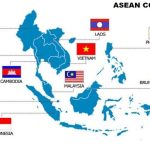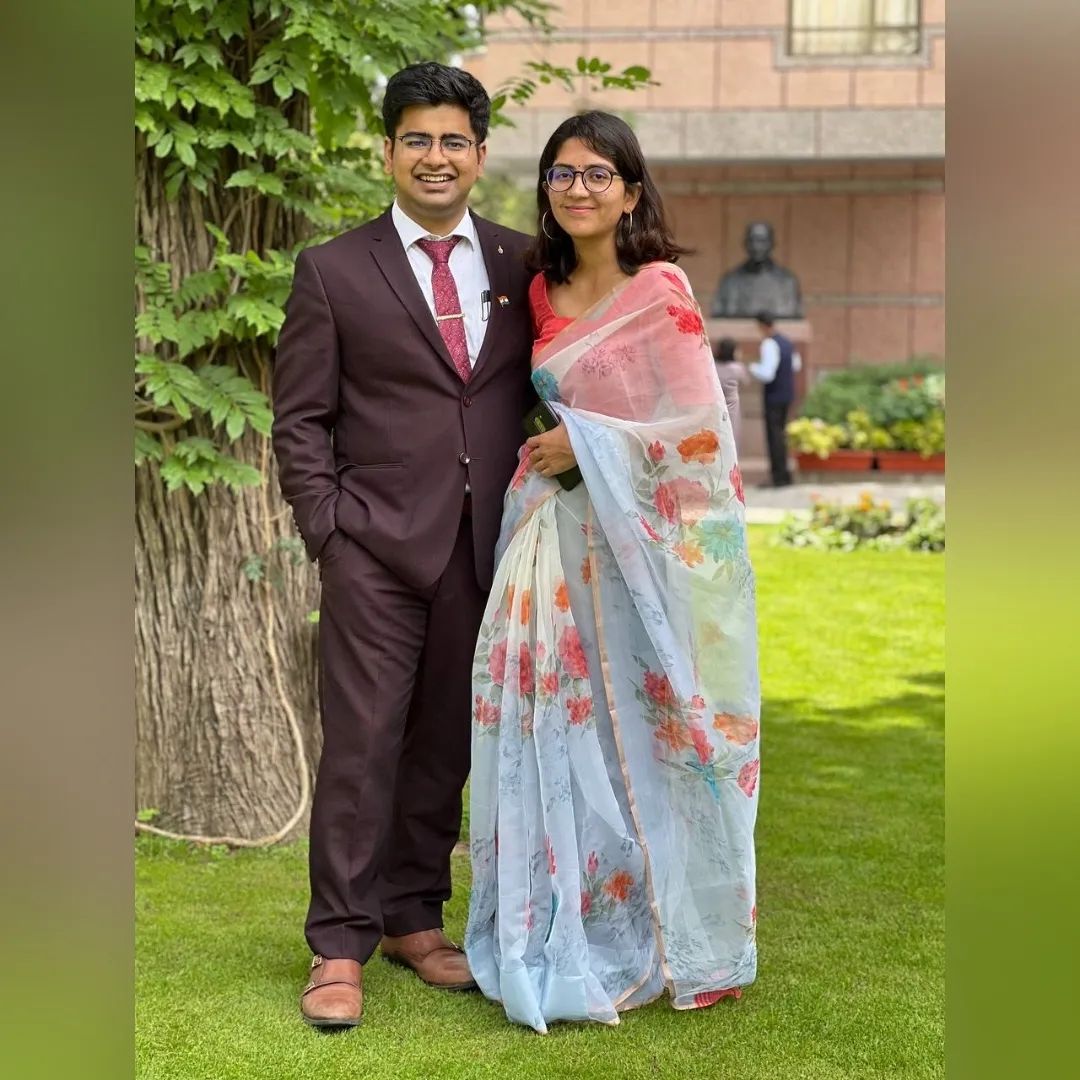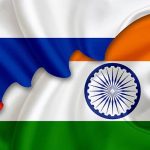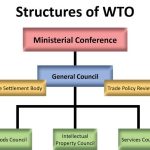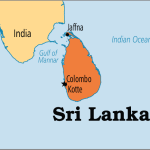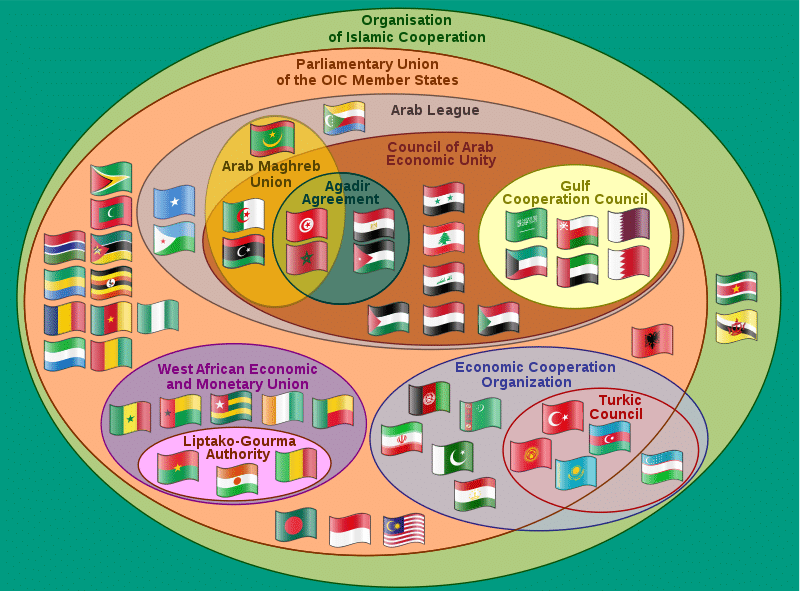
• The Organisation of Islamic Cooperation (OIC) is the second biggest international group of governments after the United Nations. It is made up of 57 countries from all over the world, and its members are spread across four continents.
• The Organisation is the voice of all Muslims around the world. It tries to protect and defend the interests of the Muslim world in the spirit of supporting international peace and harmony between people from different parts of the world.
• The OIC focuses on peace and security, Palestine, and Al-Quds (the Arabic name for Jerusalem).
for Jerusalem), Poverty Alleviation, Counter-Terrorism, Investment and Finance, Food Security, Science and Technology, Climate Change and Sustainability, Moderation, Culture and Interfaith Harmony, Empowerment of Women, Joint Islamic Humanitarian Action, Human Rights and Good Governance, and many more.
• The First Islamic Summit Conference, which took place in Morocco in September 1969, created the Organisation of the Islamic Conference to bring the Islamic world together after a 28-year-old Australian set fire to the Al-Aqsa Mosque in Jerusalem.
• There are 1.81 billion people who are Muslim, which is 23% of the world’s population. 53 countries are mostly Muslim.
70% of the world’s crude oil reserves and 50% of the world’s natural gas reserves are owned by members.
• Bangladesh, the Maldives, Afghanistan, and Pakistan are all part of the Organisation of Islamic Cooperation (OIC).
• Both the UN and the EU have official OIC delegations.
• The OIC is in charge of a lot of groups and schools.
Table of Contents
- 1 Members:
- 2 • Observer states:
- 3 Organisation of Arab States
- 4 Objectives:
- 5 Headquarters:
- 6 OIC charter:
- 7 How does the OIC work?
- 8 Problems with the OIC
- 9 Putting down the OIC
- 10 Indian and OIC
- 11 Reasons why India should be a member of the OIC
- 12 What the OIC means to India
- 13 India’s problems in the OIC
- 14 Kashmir and the OIC
- 15 Way Forward
- 16 Conclusion
Members:
• It is made up of 57 countries, 56 of which are also members of the United Nations. Palestine is the only country that is not a part of both.
Palestine is also a part of the OIC, even though it is not a part of the UN.
India is not an OIC member.
• Arabic, English, and French are the official languages of the country.
• They have a large number of Muslim people, but not all of them are Muslim-majority countries. (For example, West African and South American countries).
• Observer states:
Bosnia and Herzegovina
Central African Republic
The state of Turkish Cypriots in Northern Cyprus
Thailand
Russia
• Keep an eye on international groups:
NAM
UN
Organisation of Arab States
Union Africaine
Economic Cooperation Organisation.
Objectives:
• The OIC tries to get its member states to work together.
• To help any member state that is under occupation regain its full authority and territorial integrity.
• To protect, support, and fight against bad words about Islam.
• To stop Muslim societies from becoming more divided and to work to make sure that member states stand together at the U.N. N. General Assembly, Human Rights Council, and other foreign meetings.
Headquarters:
• Headquarters: Jeddah, Saudi Arabia.
• Once East Jerusalem is “liberated,” the organisation wants to move its headquarters there for good.
• It also wants to punish Israel for “War Crimes” and other breaches of international law.
OIC charter:
• The group follows a charter that spells out its goals, rules, and way of doing things.
• The charter was first signed in 1972, but it has been changed many times to keep up with changes in the growing world.
• The current charter was approved in March 2008 in Dakar, Senegal.
• It says that all members must be guided and inspired by the good teachings and ideals of Islam, as well as committing to the U.S. goals and principles. N. charter.
How does the OIC work?
• Membership:
U. N. People who are mostly Muslims can join the group.
The OIC’s Council of Foreign Ministers must agree unanimously to approve the membership.
To become a witness, you have to follow the same rules.
• Making a choice:
In order for the group to make a decision, two-thirds of the member states must be present and everyone must agree.
If people can’t agree on something, decisions will be made by a two-thirds majority of those who are there and vote.
The Council of Foreign Ministers is the main group that makes decisions. It meets once a year to decide how to carry out the general policies of the OIC.
o They make decisions and pass resolutions on issues of common interest, review their progress, look at and accept their programmes and budgets, talk about specific problems that bother member states, and suggest setting up a new organ or committee.
• Finance:
The member states pay for the OIC based on how much money they make as a whole.
o A member can’t vote if their arrears are equal to or more than the amount of payments they owe for the two years before.
o The member can only vote again if the Council of Foreign Ministers is sure that the failure was caused by things the person couldn’t change.
• Muslim Meeting:
It is made up of kings and other heads of state and has the most power in the body.
Every three years, it meets to discuss, make policy choices, give advice on issues that are important to the organisation, and look at issues that are important to the member states.
• The Foreign Ministers’ Meeting:
The Council of Foreign Ministers is the main group that makes decisions. It meets once a year to decide how to carry out the general policies of the OIC.
o They make decisions and pass resolutions on issues of common interest, review their progress, look at and accept their programmes and budgets, talk about specific problems that bother member states, and suggest setting up a new organ or committee.
• Permanent Committees:
The OIC also has permanent groups for cooperation in the areas of information and culture, economics and business, science and technology, and Jerusalem.
Problems with the OIC
• The OIC doesn’t have ways to put its decisions into action, so they often stay as vague statements.
• In 1981, despite a promise to work harder “for the liberation of Jerusalem and the occupied territories” and a plan to stop doing business with Israel, Indonesia, Egypt, and Arab Gulf states kept doing business with Israel.
• Part of the money is set aside to help member states that are going through civil wars or natural disasters.
• The different political views of the OIC’s members, from the radical Iran to the traditional Saudi Arabia, have also hurt the group’s ability to do its job. Gulf countries’ disagreements with each other have also hurt the efficiency of the organisation. Example: Iraq-Kuwait or Iran-Saudi Arabia.
Putting down the OIC
• Give the rights of Muslim minorities a high priority:
The OIC had become a place for “window dressing” because it cared more about the rights of Muslim communities in places like Palestine or Myanmar than the violations of human rights by its member states.
• Not good at looking into violations of human rights:
The group doesn’t have the power or money to look into violations of human rights or to make sure its decisions are followed through signed treaties and declarations.
• Based on the values in the Quran:
Most of the time, the group can only help settle disagreements between Muslims.
This is because the group is based on Quranic values, and it thinks that this makes it a good mediator.
• Didn’t set up a cooperative venture:
The OIC hasn’t been able to get its members, which are either countries with a lot of money but not enough people, to work together on a project.
The group hasn’t changed enough to become a big player in either foreign politics or economic cooperation.
________________________________________
Indian and OIC
• India is not a member, even though it has the second biggest number of Muslims in the world after Indonesia. When the OIC was first created in 1969, India said it wanted to join. However, Pakistan was very against this.
• During a visit to India in 2006, Saudi Arabia’s King Abdullah Bin Abdulaziz said, “India should have an observer status in the Organisation of the Islamic Conference, like Russia does.” He added that it would be “beneficial” if “a country like Pakistan” suggested India’s entry.
• However, Pakistan tried to put a hole in the idea when its Foreign Ministry said that any country that wanted to join the OIC as an observer “should not be involved in any dispute with a member state.”
• The Organisation was created at the Islamic Summit Conference, which took place in Rabat, Morocco, from September 22-25, 1969. The damage to the Al Aqsa mosque in Jerusalem, which is the third holiest place in Islam, was what made people want to get together. So, India took part in the third sitting of the Conference on September 23 in the afternoon. Because of what happened next and what the President of Pakistan was doing at the time, the Indian group had to be kicked out of the next sessions of the Conference. In the years that followed, India wasn’t invited back, and Pakistani diplomats found that the OIC was a good place to pass anti-Indian resolutions. In response, Indian diplomats met with OIC officials to bring attention to the Indian side. This led to some softening of stances.
• At the 45th Foreign Ministers’ Summit, which took place in 2018, the host country, Bangladesh, suggested that India, where more than 10% of the world’s Muslims live, should be given Observer status. However, Pakistan was against the idea.
• India has been sure that it can ignore any comment made by the grouping because it has built close relationships with powerful members like the UAE and Saudi Arabia.
India has always said that J&K is a “integral part of India and a strictly internal matter for India” and that the OIC has no right to talk about it.
• In 2019, India went to the OIC Foreign Ministers’ meeting for the first time as a “guest of honour.”
This first-time offer was seen as a diplomatic win for India, especially since the Pulwama attack had made things worse between India and Pakistan. (Pakistan didn’t go to the meeting)
• For example, the United Arab Emirates gave Prime Minister Narendra Modi its top civilian award, the “Order of Zayed,” more than a week after New Delhi’s moves on Article 370. They also said that Kashmir was an Indian issue.
India is a member of the OIC.
• From time to time, Qatar, Iran, and other members of the OIC have tried to get India to join the group.
• If India had an official place in the OIC, it would add to the group’s credibility and negotiating power.
• The OIC could use India to help solve important problems in the Muslim world, such as terrorism, radicalization, poverty, and so on.
• India didn’t join because of a number of things:
It didn’t want to be part of a group that was based on religion.
There was a chance that a group would make it harder to improve bilateral ties with each member state, especially on issues like Kashmir.
Reasons why India should be a member of the OIC
• Second largest Muslim community: India is not part of the Muslim world and is not a Muslim majority state, but it has the second biggest Muslim population in the world. Even though there are a lot of Muslims living in Thailand and Russia, they are only “observer members.”
• West Asian Diaspora: About eight million Indians live in West Asia and add to the economies and cultures of these countries.
• Cooperation in strategic and economic matters: India is the third largest economy in the world and one of the largest consumers of hydrocarbons like oil and gas. It also has a large number of people who have left the country. West Asia and India are becoming more economically and energy-dependent on each other, which makes it hard for West Asia to ignore India.
• Fighting back against Pakistan: India’s growing ties with the Islamic world could stop Pakistan from using the OIC secretariat and platform to spread its own propaganda.
What the OIC means to India
• The OIC is made up of about 29% of all U.N. members. Because of this, it is an important part of international meetings and does affect the results of U.N. elections. bodies, and what they decide.
• India needs the OIC because it gets most of its oil from Gulf countries and has a lot of people from India living in other OIC countries.
• The OIC is also responsible for India’s full participation in the Arab League, the Gulf Cooperation Council (GCC), and the Economic Cooperation Organisation (ECO), all of which are important to India.
• From a geographical point of view, Muslim countries and cultures are close to and all around India in Asia. Contacts with Muslim countries are a big part of how we relate to the rest of the world.
• India’s strategic setting is affected by how it gets along with these countries. But as a whole, the OIC has never been very united or successful.
India’s problems in the OIC
• The OIC’s position on Jammu and Kashmir: It has mostly agreed with Pakistan’s worries about Jammu and Kashmir. In response, the OIC has been criticising what it says are atrocities and breaches of human rights in the state.
• The presence of Pakistan: Pakistan has always been against India joining the group. It says that any country that wants to join as a spectator should not be in a fight with an OIC member state.
• Position on Israel: The OIC condemns any arbitrary actions taken by Israel that make it harder for the international community to work towards a two-state settlement and peace. India has always been in favour of a two-state settlement, but its growing relationship with Israel can make that hard to do.
Kashmir and the OIC
• The OIC has, for the most part, agreed with Pakistan’s view on Kashmir.
• The OIC says that its relationship with India can’t get much better as long as the tension between India and Pakistan over Kashmir isn’t settled. While the OIC wants Kashmir to be settled by self-determination and in line with UN decisions from 1948 and 1949, India is adamant that the problem should be solved between India and Pakistan.
• The final communique from the 13th Islamic Summit (Turkey, 2016) of the Heads of State of the OIC Member States called on India to implement the “pending UN Security Council resolutions” on Jammu and Kashmir. It also expressed concern about the “gross violations” of human rights by the Indian security forces and reaffirmed support for the Kashmiri struggle for “self-determination.”
• India’s response was to say that the OIC has no right to talk about things that are going on in India’s own country. India also told the OIC to stop making these kinds of comments in the future.
Way Forward
• The task now is to set up a policy framework that will improve relations and take into account the needs of the present. The goal should be to find more ways to work together and less ways to misunderstand each other or have different goals.
• For India to become a full member, special rules must be made for it, just like they were for other states with a Muslim population that joined the OIC.
• However, OIC countries are unlikely to offer India full membership because of how things stand between India and Pakistan and how important it is to them to keep their own public opinion in check.
• On the other hand, Observer status does not come with vote rights, and even if India had Observer status, Pakistan would still embarrass India by bringing up the J&K dispute in the OIC.
• India has good reason to be happy that Pakistan can no longer stop it from working with important Middle Eastern states.
• India is a better partner than Pakistan for the forces of political calm and social modernization that are rising in the Middle East.
• Because of this, in the current situation, the best thing for India to do would be to keep working with individual members of the OIC to build friendships and strengthen mutual cooperation, and to work against Pakistan’s plans within the OIC.
Conclusion
• The OIC is a strong way for the Muslim world’s needs to be met. So, India should try to work with it in a positive way, but not at the cost of its core values.
• India must show the “good will” of Indian Muslims who are accepting and well integrated into India’s “syncretic and composite culture” at a time when radicalization in the Arab world is at its highest. Now, it is hoped that as India’s power grows and the world’s political situation changes, the OIC will also warmly welcome India.







